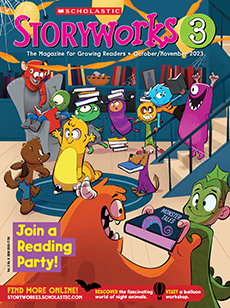Picture this: You wake up and see big blobs of snow falling outside your window. You know what this means—snow day!
You race down the stairs, excited about the snowman you’re about to build. But before you get outside, your dad calls, “School’s about to start!”
Wait—you still have school? That’s right. Some schools are now skipping weather cancellation days. If there’s a snowstorm, a heat wave, or a heavy rainstorm, these schools don’t cancel classes. Instead, students turn on their computers and continue to learn from home. But should kids still have these days off?

